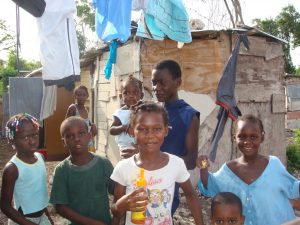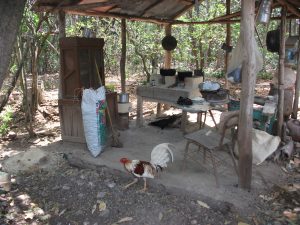I’m pleased to once again welcome a guest blogger to And So It Goes, the blog born to bring awareness to the joys, intrigues, and frustrations of cultural differences.
And Lindsay de Feliz knows first hand of these things.
I first met Lindsay through the We Love Memoirs facebook group and got to know her even better reading her two (so far) memoirs (see below). A once-proper English woman who now resides full time in the Dominican Republic, Lindsay’s post helps bring my blog back to its roots in cultural differences.

I’ll post her bio and her blog links below. Without further ado (I love saying that) I bring you Lindsay de Feliz.
Adapting to the culture of the Dominican Republic and reverse culture shock when returning to the UK
I arrived in the Dominican Republic in November 2001 to begin a six-month contract as a scuba diving instructor. Now it is 2019, and I am still here, in the DR.
I had travelled widely throughout the world, experiencing many different cultures, but nothing had prepared me for the cultural differences in the DR, though, on reflection, many are due to poverty and a lack of education. Close to half the country lives on $1 (US) a day.

The first thing to strike you is that everyone appears to be happy.
Smiling faces, everyone you meet greets you whether it be on a bus, in the street, or in the supermarket. Music is blaring out everywhere and there appears to be a disregard for the sanctity of life with no one wearing helmets or protective clothing on motorbikes, no seatbelts when driving and even driving with one hand on the wheel and a bottle of beer in the other hand. Rather than feeling appalled, I felt an incredible sense of freedom, as if the years of the shackles of rules and regulations had been broken.
The reason for the happiness, as someone once said, is that for your life to have meaning you have to learn from the past and plan for the future. But to be truly happy you need to simply live for the day. That is exactly what Dominicans do – live for the day.

Food is the central part of their lives and exactly at noon, every day, they eat.
Usually this is at least a pound of rice – each — with stewed beans and some sort of meat, most likely chicken. There is little variety in the diet, with rice eaten most days, occasionally green plantains, boiled, mashed or fried like French fries.

Family is also central to the culture, with what was to me an amazing culture of sharing.
Sharing not just food, but possessions and money. If anyone in the family is in trouble, then all other family members help out. Dominicans say that the three occasions when family and friends will always support you are when you are in jail, in the hospital, or dead.
I saw this first hand when I was in the hospital. Had I been in England I would have had one or two visitors and a plethora of flowers and cards. Much easier to ask your secretary to send flowers, than to make the time and effort to actually visit. But in the DR I had over 400 visitors – no flowers and no cards. People travelled from one end of the country to another to visit me, often having to borrow the money for their fares. They even went to shrines to pray for me.
This level of caring and sharing was alien to me and, at first, I was reluctant to share my things and my money. I had worked for it. I had bought it so why should I just give it away? Slowly, as time went on, I became less selfish and ‘things’ that had been important to me were just ‘things’ with no need to hold onto them jealously.
The disappearance of my possessions was replaced with the refreshing feeling of freedom. You were no longer judged by the clothes you wore, the job you did, the car you drove or the house you lived in. You were judged for yourself, with no encumbrance of ‘things’.

Many foreigners find the cultural adaptation not just difficult, but impossible to cope with, especially those who need order and organisation in their lives.
Time is never adhered to.
You invite someone for dinner at 7 pm and they may not arrive until 10 pm. The plumber who says he will be there at 10 am, may not arrive at all. Repairmen are usually not qualified, leading to shoddy repairs, and good car mechanics are almost impossible to find. They may fix one thing, for another to go wrong within a day or so.
Family members taking things from your home is normal and accepted behaviour. They believe you can afford to lose things as you are richer than they are, and this practice continues with most dentists, doctors, lawyers and the like charging significantly more to non-Dominicans –- just thinking of the cash today, not the possibility of a long-term relationship which could provide more money over time.
Having been in the country for 18 years now, married to a Dominican for 14, I can say I am completely aplantanado as they say — like a plantain banana — as I now act and think like a Dominican in many ways.

I recently returned to the UK for the first time in 12 years and experienced reverse culture shock.
England, land of my birth, where I grew up and had worked, had changed. Technology had taken over with the need for an App to buy most items from shops and supermarkets and no more friendly chats with check out staff; instead you scanned your items yourself and inserted your bank card into the machine.
But the biggest culture shock was to realise that although England had changed, I had changed even more.
To me the organisation which I used to embrace felt stifling and the need for order made me smile again and again. Everything had its place in all parts of the home, and woe betide you if you put sometime in the wrong place. There was a way of doing everything and no room for bucking the trend. I realised I had become completely laissez faire and making sure the spices were in order on the spice rack just was not important in the scheme of things.
The English organisation spread throughout all elements of life. Cars had to be parked in a certain place and a certain way – in the DR you can park wherever you want.
Encounters with policemen were serious issues, often ending with a fine, whereas in the DR it was a quick chat, a laugh and a joke and, once you handed over the obligatory bribe, you could go on your way.
You had to pay for what you bought in the shops, when you bought it. No more could my purchase be written down on a scrap of torn off cardboard to be paid for later.
I had not realised that embracing the culture of a different country can change you forever and make it impossible for you to return to being the person you once were.
As I tell so many new arrivals to the country now when they complain about the behaviour of Dominicans, “It is not wrong, it is different”.

Lindsay’s BIO
Lindsay de Feliz was born, raised and educated in the UK, where she worked in London as a marketing lecturer and a Marketing Director for various financial service companies. In her mid 40s, she decided to follow her dreams and travel the world as a scuba diving instructor, ending up in the Dominican Republic 18 years ago.
She was on a six month contract but fell in love with the country and its people and met and married a Dominican. Having been shot in the throat during a robbery she was unable to dive any more, and now works as a writer, translator and marketing consultant.
Lindsay currently lives in the northeast mountains in the Dominican Republic with her husband, five dogs, one cat, and numerous chickens. She writes a blog about the Dominican Republic and daily life at www.yoursaucepans.blogspot.com and is the author of the bestselling books “What About Your Saucepans?” and “Life After My Saucepans” available in Kindle and print from Amazon and other digital formats from Smashwords.


Lindsay’s links:
Twitter — @lindsaydefeliz
And, before we move on to your questions and comments, I must leave you with one additional photo, as are the others, compliments of Lindsay’s keen eye and impressive camera. The Dominican Republic is certainly a beautiful land.


Lindsay, thank you so much for sharing your observations and experiences as you navigated your way into a new culture. And then navigated the old terrain as a changed woman. This sentence really jumped out at me, in your description of first encountering some of these differences:
“Rather than feeling appalled, I felt an incredible sense of freedom, as if the years of the shackles of rules and regulations had been broken.”
How about you? What jumped out to you as you read Lindsay’s story?

C Saunders
I really enjoyed reading about Lindsay’s life and adaptation to the DR. How brave she is – anyone upping sticks and moving country has to be brave but Lindsay has it in spades. From her first book we learned of her resilience and I hope she will be back to sorts asap.
Lindsay de Feliz
Glad you enjoyed it and thank you so much for reading What About Your Saucepans? Am improving in leaps and bounds following my latest mishap!
Janet Givens
Hello C Saunders and welcome to the blog that makes us think anew. I imagine Lindsay will be making lemonade out of her recent tragedy by writing that third memoir we are all waiting for. Thanks for starting us off here today. I hope you’ll come back.
Janet Givens recently posted…Meet Lindsay de Feliz
Marian Beaman
I’ve never heard of a memoir about reverse culture shock, until now. Of course, there’s a special tension in the return: two things have changed, you and the land you left.
The Dominican Republic is gorgeous. I remember having a student from that country. He rode a bike to class, was very laid-back, and friendly.
Marian Beaman recently posted…My Cover Reveal: Behind the Scenes
Lindsay de Feliz
My memoirs are about my life here Marian. The first, What About Your Saucepans? is about the first 10 years and the second is about the following 6 years. I am so glad you know how gorgeous the DR is – it has it all from mountains to amazing beaches and yes, the people are very very friendly.
Marian Beaman
🙂
Janet Givens
Hey Marian. Thanks for joining us today. That old “You can’t go home again” idea because nothing remains the same. If home is not that different, then we certainly are. I like to think Thomas Wolfe didn’t take into account how expectations (that “home” would still be there) set us up.
I didn’t know you had an exchange student from the DR. Have you written about it?
Janet Givens recently posted…Meet Lindsay de Feliz
Merril D Smith
Thank you for sharing Lindsay’s words and experiences. It’s so interesting to read about the culture shock and then the reverse culture shock. I imagine that there were many English people who went to live in India or Africa generations ago who also went through that (IF they embraced life there). DR looks beautiful–except for that tarantula!
Merril D Smith recently posted…But, Still
Janet Givens
Good point, Merril. I wonder if our attitude about cultural difference, cultural relativity, cultural intelligence is different in our era from 50, 100, 200 years ago. I’ve read Gertrude Bell, the author who traveled throughout Asia in the late 19th century and helped establish Iraq’s borders following the fall of the Ottoman Empire. I remember being surprised that she clung to her British mindset tenaciously (I’d just returned from Kazakhstan; hers was one of the first books I put on my Kindle). Yet, she is remembered there fondly, I read. Always difficult to assess another’s frame of reference.
Janet Givens recently posted…Meet Lindsay de Feliz
Lindsay de Feliz
That is so interesting Merril about India and Africa. I had never thought about that, and of course all of those who went to the Caribbean as sugar cane plantation owners way back when as well. I find the whole area of culture shock to be fascinating and how we can change our whole approach to life as we learn new habits and behaviours. Sorry you didn’t like the tarantula – we have snakes (boa constrictors) and scorpions as well!
Terri Lyon
What a lovely story! What jumped out to me was this sentence, “Dominicans say that the three occasions when family and friends will always support you are when you are in jail, in the hospital, or dead.” That level of caring is exceptional. In my extended family, I’ve seen judgment placed on those who behave badly or are less fortunate, with a corresponding withholding of care. How wonderful it would be to have a support system like the one that exists in the DR. Thank you for sharing your experiences, Lindsay.
Terri Lyon recently posted…It is time to talk about it
Janet Givens
Hi Terri, so glad you could join us. Thanks for your observation. I found so many similarities in Lindsay’s story to my life living in Kazakhstan. That ancient (well, not so ancient — maybe 300 years?) distinction between individual and communal cultures that Lindsay references in her example is alive and well in so many lands, just not so much in ours.
Lindsay, if the aged or ill person has no family — say Danilo and the boys were all at the other end of the island and couldn’t get back for weeks — would your neighbors pitch in? Is it a community wide support system, or more family only? This is such a vital distinction. I know you speak some to this in your memoirs; I’m wondering if their support was extended to you as a special person or not.
Janet Givens recently posted…Meet Lindsay de Feliz
Lindsay de Feliz
Janet people tend to stay near their parents, not moving far away as happens in say the UK and US. There is never any question of them not getting back, bad news spreads like wildfire here and if someone dies it doesn’t matter how long it will take you to get there, you go immediately. Neighbours yes pitch in, but the family are always there and yes neighbours have helped me too – especially when my husband is away and I have a problem to sort out – like burying deceased animals, or being invaded by a swarm of bees!
Janet Givens
Lindsay — you say that so nonchalantly. “invaded by a swarm of bees.” Kudos.
Janet Givens recently posted…Meet Lindsay de Feliz
Lindsay de Feliz
Thanks so much Terri. Yes the level of caring is totally exceptional and I had to learn that you don’t just marry the man, you marry his whole family. There are only a couple of old people’s homes here, it is thought to be appalling you would place your elderly relative in a home. They are always cared for and live with the children or grandchildren and the elderly grandmother is the most respected person in the home. Even those with severe mental or physical challenges when they age are always cared for by the family. Those who are less fortunate, financially or emotionally are always supported by the family and if someone needs medical care the family will even sell their possessions to ensure they receive the best care possible.
Julie
Hi Lindsey
Glad to see you are enjoying the UK. I am now living in the DR. Here since October
Janet Givens
Hello Julie and welcome. I imagine you can relate to many of the challenges Lindsay has faced. Or are you still in that honeymoon phase?
Janet Givens recently posted…Meet Lindsay de Feliz
Lindsay de Feliz
Welcome to paradise Julie! I only went back to UK for 3 weeks but it reminded me of the good things there – like food and family, so will be going back more often than once every 12 years now!
Alessandra Turchetto
I always enjoy reading Lindsay’s “stuff” I just think she is an inspiration on many levels and even though she is a petite person I know her heart is the size of the mountains she lives on
Lindsay de Feliz
Thanks so much Alessandra!
Janet Givens
Hello Alessandra, and welcome. I’d say her determination is pretty strong as well. Do you also live in the DR?
Janet Givens recently posted…Meet Lindsay de Feliz
John Boyter
I live in the DR since 2005. Have also spend time in Cuba, Cayman and Miami. So I know about culture shock. I also felt the reverse shock going back to Denmark after several years. Now I just want to be in the DR and I go more back to Aarhus, Denmark and feel comfortable now both places.
Janet Givens
Hello John and welcome. One of the lessons from culture shock, I’ve found, is what it teaches us about our own culture. So, I’m curious what you’ve learned anew about Danish culture that you might not have noticed before your travels.
Janet Givens recently posted…Meet Lindsay de Feliz
John Boyter
When I went back to Denmark the first time after several years I noticed how quiet it was as Santo Domingo is very noisy and on TV they all seemed so serious and the food is more robust. Danish dark bread and pastries was hard on my stomach.
Lindsay de Feliz
Hi John, interesting that you too experienced culture shock on returning to Denmark, and yes I think once you have experienced it once you can become more comfortable in your home country as well as your adopted one.
John Boyter
Thats exactly the experience I have now Lindsay. I feel more comfortable in the DR my adopted country and just a few years ago I wanted to move away. I wanted to get away from the city Santo Domingo especially. I now appreciate it more. The hustle and bustle keeps me busy and I live so I can walk to my office if I want to.
susan scott
Culture shock – anything that moves us out of our comfort zones has to be a good thing! The care of family and extended family to those in need is exceptional, but I’m not sure I could live comfortably with the notion that it’s ok to take what’s not yours or bribing a police officer to make the offence go away … too much of that happens here in my country.
Coming back to the UK must have been a whale of an experience with their rigidity and need for things to be just so – to say nothing about Brexit and the political dramas.
I love this attitude of the DR ..
‘The reason for the happiness, as someone once said, is that for your life to have meaning you have to learn from the past and plan for the future. But to be truly happy you need to simply live for the day. That is exactly what Dominicans do – live for the day’.
Thank you for this post – it is lovely and refreshing!
Janet Givens
Hi Susan. Thanks for your comment. Refreshing, what a good word. Lindsay’s post has been refreshing. And, I’m realizing, it’s also bumped me out of my own comfort zone in spots, reminding me how much I like order, every thing in its place, predictability. Oh dear. Isn’t that the gift of culture clash — getting to know ourselves anew.
Janet Givens recently posted…Meet Lindsay de Feliz
Lindsay de Feliz
Hi Susan. Yes adapting to a different culture, especially the DR, is just too uncomfortable for many and they last so long and then return to their native country. I think you need a totally open mind and I find myself thinking that in the scheme of things, does it really matter if the cutlery drawer has everything in the wrong place and not in order. My daily mantra is ‘does it really matter?’. And I often find myself wondering, why is it that we need so much order in our lives when Dominicans don’t at all?
Kathleen Pooler
Lindsay, what a fascinating story of how immersing in another culture is life-changing— transformational. I find the older I get, the less I care about “things”. I can see how living simply is freeing. Thank you for sharing the impact of cultural differences, including the reverse cultural shock when you returned to your homeland, on your life. And thank you Janet for featuring Lindsay.
Janet Givens
Thanks Kathy. I’m so glad you could drop by. Can you imagine our extended families dropping in and walking off with something? We have such a tight grip on “private property” here. Lindsay’s post has reminded me of that. I’m happy to give away my things; not so thrilled to have them taken. The power of culture yet again.
Janet Givens recently posted…Meet Lindsay de Feliz
C Saunders
So true. It is the gift rather than “taking” which is alien to our culture. I don’t think I could change to accepting that as the norm -don’t you try taking my favourite books (for example).
John Boyter
I have some experience with that too and people don’t seem to steal books that much. Its really an economic issue more than a cultural one.
Janet Givens
Good point, John. Thanks. You live in the DR now. Do you see the economic troubles there getting better or worse?
Janet Givens recently posted…Meet Lindsay de Feliz
Janet Givens
Oh yes. And then we have the whole notion of “Gift Giving” — such a cultural minefield. Thanks C
Janet Givens recently posted…Meet Lindsay de Feliz
John Boyter
I see the DR improving a little all the time.
Janet Givens
That’s nice to hear. Thanks.
Janet Givens recently posted…Meet Lindsay de Feliz
Lindsay de Feliz
Hi Kathleen. I loved your book, Ever Faithful to His Lead, by the way. I am glad you are also moving away from a thing- centred life. Yes, simplicity is freedom.
Tim Fearnside
Thanks, Lindsay & Janet – ‘very much enjoyed the post. While I’ve never had this type of deep, cultural immersion, it did remind me spending a couple of months in Europe in my early ’20’s, mostly in Spain. At first, their lackadaisical approach to time drove me a bit crazy. Stores kept irregular hours, and were often closed when they were “supposed” to be open. It was difficult to accomplish tasks, even ones as seemingly simple as mailing a letter or postcard home. Over time, though, I let go of my American expectations of how things were supposed to operate, and came to truly appreciate their approach to life — which, was much more about living for the day, and more centered around food, family, and balance. By the time I left, I seriously wondered whether, perhaps, they had it right, and we had it wrong. I hope it continues to be this way, nearly 3 decades later. Best regards, T
Janet Givens
Great observations, Tim. I remember when the “time thing” in Kazakhstan drove me bonkers. Intellectually, I knew it was cultural yadda yadda. But it still took me months (as in nearly 12 of them) to come to terms with the differences and relax into it. Maybe I’m just a slow learner. 🙂 Thanks for adding your voice. It’s always a good one.
Janet Givens recently posted…Meet Lindsay de Feliz
Lindsay de Feliz
Thanks Tim for your comment. Glad to hear that you too moved from crazy to appreciation. I wonder who has it right and who has it wrong! Reminds me when I had my marriage to my Dominican husband blessed in England in church. The pastor blew his nose on his handkerchief and put it in his pocket. My husband turned to me and said, in Spanish, “How can this man marry us with a pocket full of snot? He should blow it between his fingers on the ground, not carry that around all day”. Not wrong – just different.
Pamela
Fascinating post. I understand what Lindsay went through, probably because she describes it so well here. The culture shock of leaving the place of your birth – a place that seems to be the ‘right way’ of doing things – to a place that shows the right way is all dependent on where you live and the culture of the place. By having experiences in different countries/cultures, I feel we have a better way of understanding what is “right’ for us, individually.
As much as I like order and laws, I think I’d have the same reaction as Lindsay upon moving to the DR. Learning how to enjoy EACH DAY with openness and freedom, laughter and love…and rice – now that really seems like the “right” way.
John Boyter
If you try multiple places you may also get over the “the grass is greener” as nowhere is perfect.
Janet Givens
Hi Pam. I think you hit the central idea here — that the gift of culture clash is how it teaches what is important to us; difference presents us with choice, often for the first time. It can be exciting, frightening, exhausting, or enlivening. Thanks for stopping by from your vacation.
Janet Givens recently posted…Meet Lindsay de Feliz
Janet Givens
Many of you who knew Linsday already, knew of her ordeal at the hands of an armed robber in her home two weeks ago. In its wake, she and I discussed how to handle her already scheduled guest post and she not only didn’t want to postpone it, she decided she’d answer questions about the attack as they came up. They didn’t and I decided not to push the topic. She’s now written about her ordeal (she calls it her incident in classic understatement) on her own blog and I urge you to read her story and offer your support. Here’s the link https://yoursaucepans.blogspot.com/2019/02/violence-in-dominican-republic-incident.html?m=1
While there, you might want to check out her earlier post with photos from her recent trip back to the UK. Lovely thatch roofed cottages, yummy English food (I know; I too thought that was an oxymoron), even an organized English kitchen drawer are all there for your perusing pleasure.
Janet Givens recently posted…Meet Lindsay de Feliz
Angela Noel Lawson
Holy wow. I love this little glimpse into your world. I definitely think it’s a mindshift to get away from “right” way to do things to “different” way of doing things. But your examples, and perspective brought some light into that darkness. I’m inspired.
Lindsay de Feliz
Thanks Angela – that to me is the most important thing to remember, especially for those foreign ladies who marry Dominican men and struggle with the cultural differences. They tell me all the time “It’s not right!” what he does and I have to try and explain it is just different!
Janet Givens
Hello Angela and welcome. I’m so glad you stopped by and enjoyed Libdsay’s post. “It’s not wrong; it’s just different” would make a good wall poster, huh?
Janet Givens recently posted…Meet Lindsay de Feliz
Jan Wild
I loved this post, so informative and evocative. I honestly can’t imagine living that life but I have so much admiration for those that can and Lindsay does it so well it seems.
Janet Givens
Hello Jan and welcome. Thanks very much for stopping and reading Lindsay’s story. I love that I can share here glimpses of life in other parts of the world.
Janet Givens recently posted…Meet Lindsay de Feliz
Lindsay de Feliz
So pleased you enjoy the post Jan.
An Update on Lindsay de Feliz – Janet Givens
[…] of you who follow the Comments on my blog probably saw this one I left on last week’s post where Lindsay de Feliz was my […]
Runningonempty
Here in Australia it depends if you’re country or city.
In our small town we are known, so when the big bag of chicken food got accidentally delivered, when I had already taken a bag home, I knew they wouldn’t fret if I paid a week later as usual. No worries, mate!
The pic of the young men I found attractive (very 😉 ) but the spider puts me off living there (arachnophobic )!
Runningonempty recently posted…Learning to look
Janet Givens
Hello “Runningonempty” and welcome. I’m glad you caught up with us. Yes, I too was quite smitten with that photo of Lindsay’s hubs and his sons plus one, people we get to meet more fully in Lindsay’s memoirs.
I think you make a good point about the difference between rural and urban life. Thanks for adding that.
Janet Givens recently posted…An Update on Lindsay de Feliz
Shirley Showalter
Very interesting perspective. I remember being moved and amazed by Haitian people and culture, on the other side of the island, back in 1980-81. Different languages. Even more poverty. But amazing energy and joy.
Janet Givens
Thank you so much, Shirley, for reading about Lindsay and sharing a bit of your experience. My understanding, from Lindsay actually, is that Haiti’s is a quite different culture. But I think there is something deep within us all that, despite external circumstances, we can find joy if we want it badly. I think of Viktor Frankl’s Man’s Search for Meaning. Attitude is so important. I’d love to read about your trip to Haiti; I hope you’ve written about it. I’ll check.
Janet Givens recently posted…Autumn Leaves: A memory